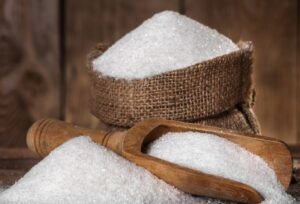
The Ministry of Agrarian Policy and Food has allocated sugar quotas for export to European Union countries, which will remain in effect until August 5, 2025, according to the ministry’s press service.
According to the report, the sugar quota has been distributed among exporters in proportion to their actual exports of this product to EU countries in January-May 2025.
The quotas were allocated to the following companies: TOV “Radehivsky Sugar” — 3,977.6 tons, TOV “Tsukoragroprom” — 1,700.9 tons, TOV “PK ”Zorya Podillya” — 927.6 tons, PJSC “Teofipol Sugar Plant” — 915.1 tons, LLC “Narkevychi Sugar Plant” — 688.8 tons, LLC “Novoorzhytskyi Sugar Plant” — 598.4 tons, LLC “Starokostiantynivtsukor” — 451.6 tons, LLC “Shamraivsky Sugar” — 381.5 tons, LLC “Shepetivka Sugar” — 349.5 tons, LLC “Signet-Center” — 259.4 tons, LLC “Agrocomplex ”Green Valley” — 216.5 tons, Kraievyd LLC — 184.2 tons, Novomyrhorodsky Sugar LLC — 140.7 tons, Prisma-14 LLC — 121.7 tons, and Krasylivsky Sugar Plant PJSC — 94.0 tons.
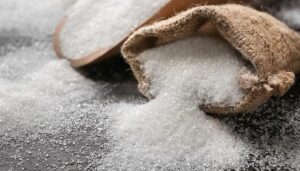
Ukraine has already exported 494,000 tons of sugar in the 2024-2025 marketing year, of which 196,600 tons were exported in January-April 2025, according to the press service of the National Association of Sugar Producers of Ukraine “Ukrtsukor” on Facebook.
According to the report, 90% was destined for the global market, with 10% exported to EU countries.
According to the industry association, Turkey remains the leading buyer of Ukrainian sugar, accounting for 16% of export volumes, followed by Libya (11%) and EU countries (10%).
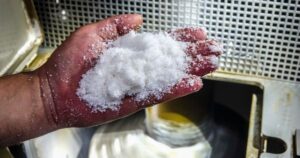
Haysynskyi Sugar Plant, part of the Ukrprominvest-Agro agricultural holding (UPI-AGRO), has started producing sugar from syrup put into storage during the 2024 production season, the agricultural holding’s press service reports.
“Haysynskyi Sugar Plant is the first in Ukraine to implement a technological scheme for processing sugar syrup,” the agricultural holding emphasized.
According to the report, this year’s syrup production season will last 37 days. During this time, it is planned to produce 26 thousand tons of sugar from 48 thousand tons of syrup.
So far, more than 7 thousand tons of sugar syrup have been processed.
“Ukrprominvest-Agro is engaged in growing crops, producing sugar, flour, meat and dairy farming. The group’s land bank exceeds 116.5 thousand hectares. The agricultural holding is located mainly in regions that have not been invaded by the Russian occupiers.
The group’s sugar business is represented by two sugar factories in Vinnytsia region. The total elevator storage capacity is 120 thousand tons.
Ukrprominvest-Agro comprises Agroprodinvest Group LLC, PJSC Podillya PC, LLC Zorya Podillya PC, LLC Vinnytsia Bakery No. 2, AF Dniproagrolan, AF Ivankivtsi, LLC Mas-Agro, LLC Pravoberezhne, and LLC Progress-NT.
The owner of the agricultural holding since December 2019 is the son of the former President of Ukraine Oleksiy Poroshenko.

From September to February (6 months of the 2024-2025 marketing year), Ukraine exported more than 403.5 thousand tons of sugar, of which 1.6% was sent to the EU countries, the rest to world markets, the press service of the National Association of Sugar Producers of Ukraine “Ukrtsukor” reported.
The industry association noted that exports to the EU resumed in February and amounted to 6,559 tons. The main EU countries where Ukrainian sugar was exported were Bulgaria (72% of the exported volume), Greece (12%) and Italy (12%).
The main export destinations for Ukrainian sugar in the first 6 months of 2024/25 MY were Turkey (18% of total exports), Libya, North Macedonia, Somalia, and Sri Lanka.
As reported, in the production season of 2024, Ukrainian sugar producers produced 1.8 million tons of sugar. The volume of the domestic market in Ukraine is currently estimated at 900 thousand tons per year.
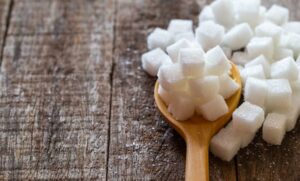
In the first five months of the 2024-2025 marketing year (September 2024-January 2025), Ukraine exported more than 352 thousand tons of sugar to foreign markets, which is 17% more than in the same period of 2023-2024 MY, the press service of the National Association of Sugar Producers of Ukraine Ukrtsukor reported on Facebook.
The business association emphasized that the entire exported volume was directed to the world market, while in September 2023-January 2024, the share of exports to the world market was only 9.5%.
“The significant increase in the world market share in sugar exports is the result of successful efforts of Ukrainian sugar producers to find alternative markets due to restrictions imposed on Ukrainian sugar by the EU,” the industry association explained.
The main export destinations for Ukrainian sugar in September 2024-January 2025 were Turkey (19% of total exports), Libya, Somalia, Sri Lanka, and North Macedonia.
Ukrtsukr noted that since January 1, 2025, the possibility of exporting sugar from Ukraine to the EU countries has been restored. During the first 5 months of 2025, the domestic producers will be able to export 107.3 thousand tons of sugar to the EU.
As reported, in the production season of 2024, Ukrainian sugar producers produced 1.8 million tons of sugar. The volume of the domestic market in Ukraine is currently estimated at 900 thousand tons per year.
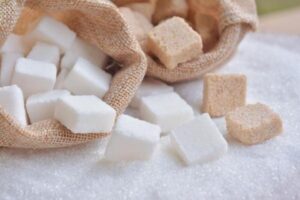
In 2024, Ukrainian sugar producers set a historical record for sugar exports, exporting 746.3 thousand tons of this product to foreign markets for $419 million, according to the National Association of Sugar Producers of Ukraine (Ukrtsukor), which announced the TOP-5 sugar producers in the 2024 season, the association’s press service reported on Facebook.
According to the report, Radekhivskyi Sugar topped the ranking with a 31% share in the total Ukrainian production, followed by Astarta Agro Holding with 21% of the market share, and Ukrprominvest-Agro with 14%. The fourth and fifth positions were shared by Teofipolsky Sugar Plant and Aspek Group with equal production shares of 6%.
As reported, in the 2024 season, which ended on January 21, 2025, 29 sugar factories operated in Ukraine. They produced a total of 1.8 million tons of sugar.
In 2024, Ukrainian sugar producers set a historical record for exports of sugar produced in the 2023-2024 marketing year and supplied 746.3 thousand tons of this product to foreign markets for $419 million.